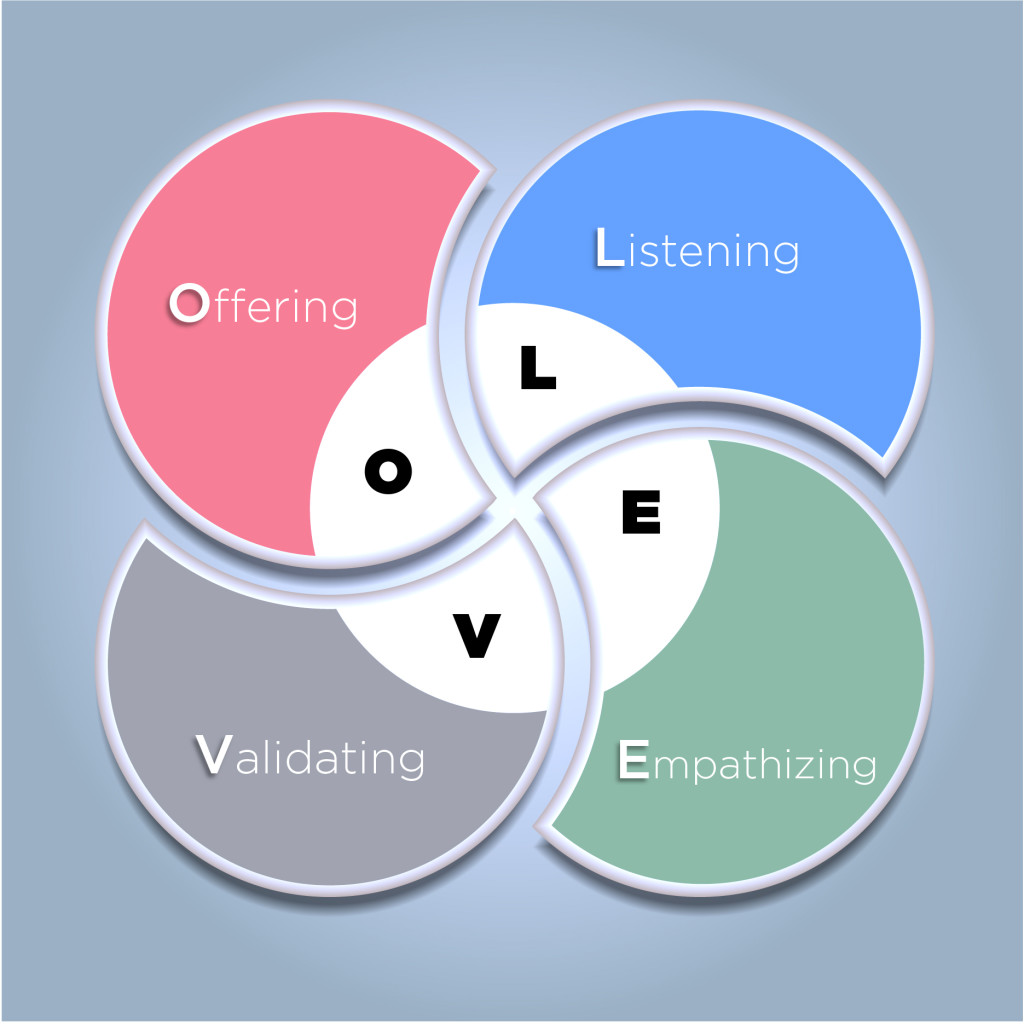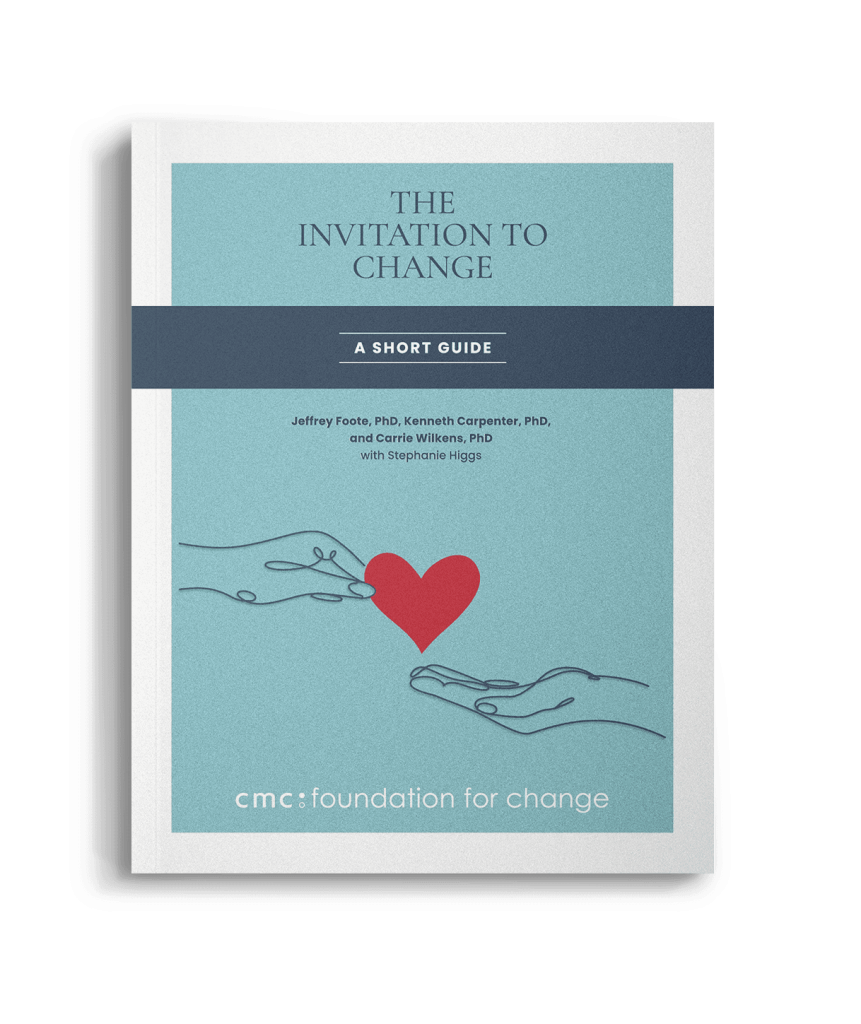
You’ve probably heard it said that love is not a noun; it’s a verb. According to an acronym that helps people remember communication skills, LOVE is four verbs: Listening, Offering, Validating, and Empathizing.
Listening
There are many ways to listen to another person, some more helpful than others. A powerful therapeutic approach called Motivational Interviewing emphasizes four strategies: open-ended questioning, affirming, reflecting or active listening, and summarizing. It’s an approach to listening that helps the red lights turn green, instead of driving straight through and hoping things work out.
1. Open-ended questions – These are questions that call for some elaboration, that can’t be answered with one word (e.g. “What concerns you most?” “What would you like to be different?”). Open questions invite description, giving you, the listener, more to listen to and learn from. They also set a collaborative tone, as they communicate more interest in your partner’s view. Open-ended questions should be inviting information (from them), not suggesting information (from you).
| Closed question | Open-ended question |
|---|---|
| “Don’t you feel bad that your boss called you into his office?” | “What was your reaction when your boss called you into his office?” |
| “Do you wish we’d stayed later at that party?” | “Tell me what you liked about that party?” |
2. Affirmations – Listen for the positives. Communication can easily become all about what’s wrong. Noticing what’s going right and explicitly acknowledging it can change everything: it puts some balance back in the conversation, holds a positive connection, and keeps you headed for green lights. How? Affirming statements reduce defensiveness, which helps when you get to tougher issues (what’s not going so well). They also provide direction, increase self-esteem and reinforce positive behaviors. Affirmations are not cheerleading, which is more general; they refer to something specific. Highlighting your partner’s strengths and recognizing positive behaviors will improve your relationship with your partner and help her to change.
For example, you can:
- Acknowledge effort: “It’s obvious you are trying hard.”
- State your appreciation: “I appreciate your openness and honesty today.”
- Catch the person doing something right: “Thanks for helping my mom out today.”
- Give a compliment: “I like the way you said that. You are really good with people.”
- Express hope, caring, or support: “I hope this weekend goes well for you!”
3. Reflections – Also called active listening, reflections involve restating some or all of what you think the person talking to you said. Your reflection can simply restate the words you heard, or it may reflect the feeling in the words; it can even infer meaning, as long as you are open to maybe getting it wrong! Reflections are statements, not questions (which can slow down or redirect the other person).
As well as communicating that you understand what your partner is saying, reflections make sure you actually do understand what she is saying—or, if you get it wrong, that you are trying. Reflecting is not necessarily agreeing, but it is being willing to hear how your partner sees things, instead of immediately countering. Reflective listening helps a discussion go forward, even or especially after you’ve hit a red light.
4. Summaries – With open questions, affirmations, and reflections, you may end up in a long and productive conversation! Summarizing communicates that you were listening, and helps pull together the important things that were said. It can also help your partner tie his thoughts together in a way that might lead her to connect certain dots. Summaries can even guide the conversation toward a next step, without forcing an agenda. Like reflections, summaries should come with permission for your partner to disagree with or correct the record as you recount it. Try to summarize as accurately as possible, without editing the conversation to include what you wished she had said.


